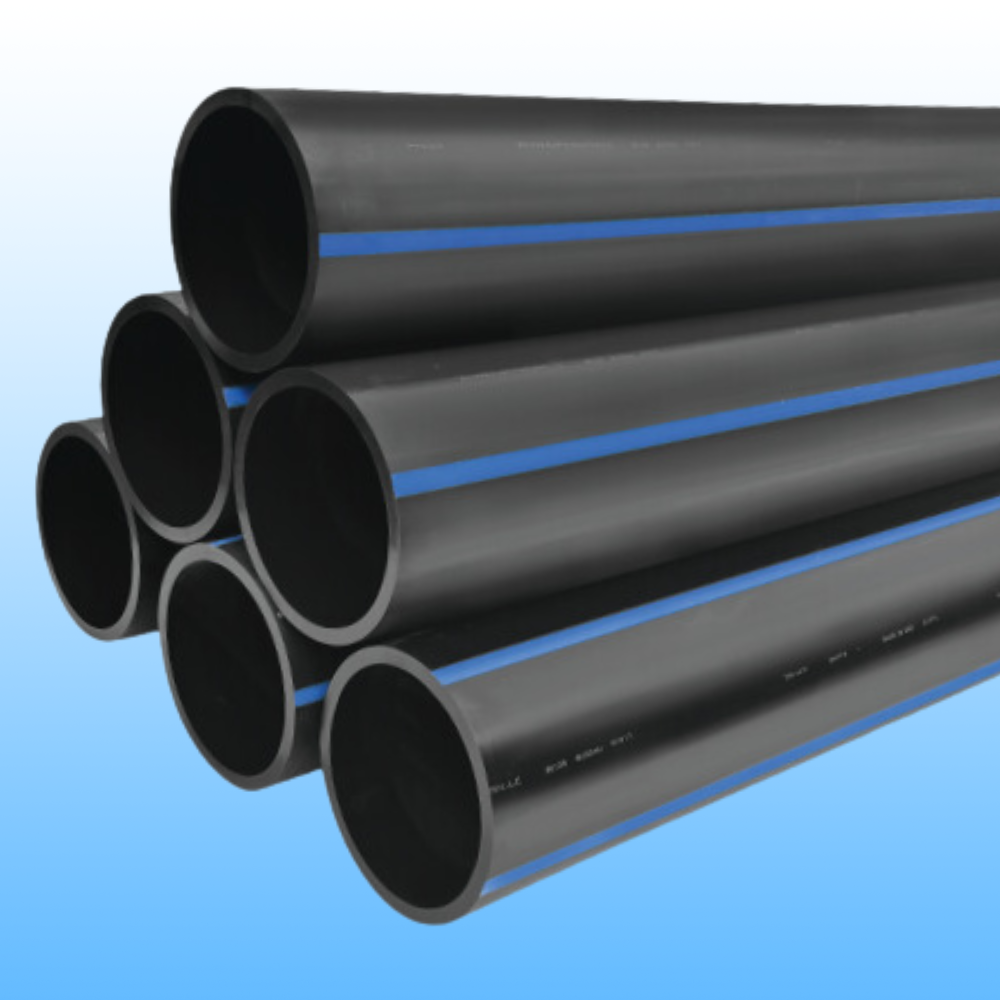Texas hdpe pipe manufacturer: Green Manufacturing
Wiki Article
Understanding the Secret Advantages of HDPE Pipe for Water and Wastewater Administration
Making use of HDPE pipe in water and wastewater administration offers countless benefits that warrant consideration. Its extraordinary longevity and long lifespan make it a recommended choice for several jobs. Additionally, the material's resistance to deterioration and chemical damages enhances its integrity in numerous environments. Nevertheless, the benefits extend beyond just longevity and resistance. Discovering its cost-effectiveness and environmental effect exposes much more engaging reasons for its widespread adoption in contemporary infrastructureExtraordinary Durability and Long Life

HDPE pipe sticks out for its remarkable longevity and long life, making it a favored selection in water monitoring systems. Created from high-density polyethylene, these pipelines can stand up to substantial pressure and tension, making sure trustworthy efficiency gradually. Their durable nature enables them to sustain severe ecological conditions, including temperature fluctuations and dirt motions, which can trigger other materials to fail.
The life expectancy of HDPE pipelines frequently goes beyond 50 years, providing a cost-effective option for districts and industries alike. In addition, the material's light-weight residential properties streamline setup, reducing labor prices and durations. This sturdiness minimizes the requirement for constant repair work or substitutes, further enhancing its financial allure.
In water management applications, the dependability of HDPE pipelines suggests fewer disruptions and improved service connection, making them important to sustainable facilities advancement. The combination of resilience and durability solidifies HDPE's role as a keystone in reliable water administration options.

Resistance to Corrosion and Chemical Damages
While numerous products catch deterioration and chemical damages in time, HDPE pipes exhibit remarkable resistance, making them suitable for different water management applications. This durability stems from the molecular structure of high-density polyethylene, which is inherently non-reactive and does not wear away like steels or degrade from exposure to harsh chemicals. Therefore, HDPE is highly effective in atmospheres with hostile substances, such as wastewater systems that might consist of acids, bases, and organic solvents.
Additionally, HDPE pipelines can stand up to ecological variables such as dirt level of acidity and saline conditions, even more improving their viability for varied applications (hdpe pipe suppliers Midland TX). Their ability to preserve structural stability in time reduces the danger of leakages and failures, which is essential in guaranteeing the safety and security and dependability of water distribution and wastewater administration systems. The resistance to rust and chemical damages considerably contributes to the overall efficiency and durability of HDPE piping remedies.
Cost-Effectiveness and Economic Advantages
When considering the financial ramifications of water monitoring systems, the cost-effectiveness of HDPE pipelines ends up being obvious. These pipelines supply lower setup and maintenance expenses contrasted to typical materials like steel or concrete. Their lightweight nature simplifies transportation and setup, resulting in decreased labor costs. Additionally, HDPE pipelines exhibit a lengthy life-span, typically exceeding half a century, which translates to less substitutes and long-lasting financial savings.Moreover, the resistance of HDPE to rust and chemical damage minimizes the need for costly repairs and replacements. The pipes likewise support reliable water circulation, decreasing energy expenses connected with pumping systems. By alleviating leakages and water loss, HDPE pipelines add to significant financial advantages for districts and sectors alike. In general, the first investment in HDPE piping can produce significant monetary returns over the life expectancy of the water management system, making it a prudent selection for sustainable infrastructure advancement.
Ecological Sustainability and Reduced Impact

Versatility and Adaptability in Installment
As a result of their one-of-a-kind buildings, HDPE pipelines offer remarkable convenience and adaptability in installment, making them ideal for a wide variety of applications. Their light-weight nature enables less complicated handling and transportation, minimizing labor expenses and installment time. HDPE pipes can be curved and shaped to fit different terrains and task demands, which is particularly valuable in challenging environments.In addition, their resistance to corrosion and chemical damages permits setup in diverse setups without the demand for specialized protective layers. The ability to fuse joints creates a continual, leak-free system, boosting the total stability and dependability of the setup. HDPE's versatility additionally suits ground activity, decreasing the danger of damage in locations vulnerable to moving soil. In general, these attributes make HDPE pipelines not only versatile yet likewise a favored option for water and wastewater management systems.
Regularly Asked Concerns
Just How Does HDPE Pipe Contrast to PVC in Water Administration Applications?
HDPE pipe provides exceptional versatility, resistance to deterioration, and toughness contrasted to PVC. Its lighter weight facilitates easier installment, while its lengthy life expectancy lowers replacement expenses, making HDPE a recommended choice in water monitoring applications.What Is the Lifespan of HDPE Pipes Under Normal Conditions?
Under normal problems, HDPE pipes can have a lifespan varying from 50 to 100 years. Their sturdiness and resistance to rust add to their long-lasting efficiency in numerous applications, making them a reputable option for facilities.Are HDPE Pipes Recyclable After Their Solution Life?
Yes, HDPE pipelines are recyclable after their life span. custom hdpe pipe manufacturing Midland TX. They can be refined and repurposed right into brand-new products, substantially minimizing environmental effect and promoting sustainability website within the industry, making them a green option for piping solutionsWhat Is the Installation Process for HDPE Pipes?
The installment process for HDPE pipelines entails website preparation, trenching, pipeline blend or mechanical signing up with, backfilling, and stress testing. Proper techniques ensure a sturdy and effective system for carrying water and wastewater properly.Can HDPE Piping Be Utilized for Both Potable and Non-Potable Water Systems?
Yes, HDPE pipelines can be utilized for both drinkable and non-potable water supply. Their flexibility, resilience, and resistance to rust make them appropriate for various applications, ensuring risk-free and effective transport of water in different contexts.Report this wiki page